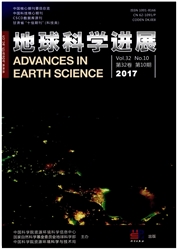

 中文摘要:
中文摘要:
随着人口增长和经济社会快速发展,人类活动已成为陆地水循环变化的重要驱动因子,人类用水活动对陆地水循环的影响越来越受到人们的关注。回顾近年来人类用水活动对大尺度陆地水循环影响方面的研究进展;阐述灌溉、生活和工业用水、水库调节以及地下水利用等典型人类用水活动影响大尺度陆地水循环的过程与机制,并在此基础上探讨了陆面水文模型中人类用水活动参数化方案及其存在的问题。目前,陆面水文模型对人类用水活动的考虑依然不足,使得应用模型模拟陆地水循环和评估变化环境下水资源安全面临挑战。展望未来,深入认识人类用水活动与水系统的影响与反馈,开发考虑人一水系统协同演化的水系统综合评估模型,预估水安全形势的演变趋势,将成为陆地水循环和水资源研究的长期重要任务。
 英文摘要:
英文摘要:
Along with the increase of population and extraordinary economic and social development, human appropriation of freshwater supply increases rapidly. Anthropogenic activities have become an important driving fac- tor of the large-scale terrestrial water cycle. The hydrological effects of human water use have attracted growing at- tention. In this paper, we briefly reviewed the recent studies addressing the anthropogenic disturbance of the large- scale terrestrial water cycle. The review focused on the direct alteration of the water cycle for human needs, with special coverage for the primary aspects of human water use such as irrigation, domestic and industrial water use, reservoir regulation and groundwater mining. The state-of-the-art parameterization schemes of human water use for macroscale land surface hydrological modeling were introduced and the limitations of the schemes were discussed. Considering the impacts of human water use on the terrestrial water cycle is currently a challenge for macroscale land surface hydrological modeling, which hinders the use of the models in assessing water resources under chan- ging environment. Further studies are needed to understand the interactions between human and water systems, to develop integrated assessment model of coupled human-water systems, and to assess regional and global water secu- rity.
 同期刊论文项目
同期刊论文项目
 同项目期刊论文
同项目期刊论文
 期刊信息
期刊信息
